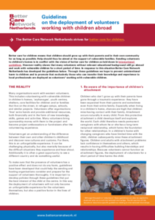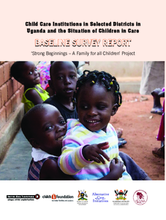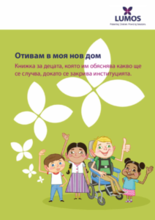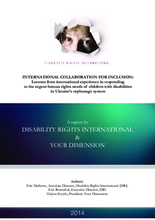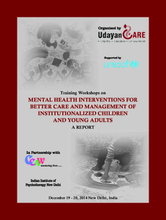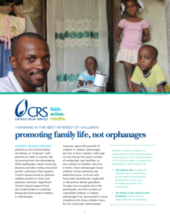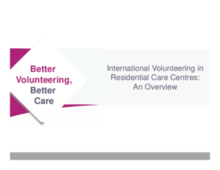Displaying 501 - 510 of 772
Through these guidelines BCN Netherlands hopes to prevent unintentional harm to children and to promote that exclusively those who can transfer their knowledge and experience to local professionals are deployed as volunteers working with vulnerable children.
This video from Globalsl.org, produced by Kindea Labs, describes both the negative impacts of orphanage volunteering and tourism as well as the ways in which international volunteering can be conducted appropriately for a positive impact on a community.
This report presents findings of a baseline study for the Strong Beginnings -- A Family for all Children project.
This video was produced as part of the “Don’t Create More Orphans” Campaign, developed by Child Safe Network, Friends International, and partners.
Целта на тази книжка е да обясни на децата какво да очакват през периода, когато институцията се затваря.
This study tested the capacity to perceive visual expressions of emotion, and to use those expressions as guides to social decisions, in three groups of 8- to 10-year-old Romanian children: children abandoned to institutions then randomly assigned to remain in ‘care as usual’ (institutional care); children abandoned to institutions then randomly assigned to a foster care intervention; and community children who had never been institutionalized.
This report documents Ukraine’s Soviet-era system of orphanages and other institutions for children with disabilities. The report details the violence, exploitation, and other human rights violations that are frequently committed against these children. It also shows how families who wish to keep their children with disabilities at home are often forced to institutionalize them as a result of lack of support.
The report from the two-day Training Workshops on “Mental Health and Interventions for Better Care and Management of Institutionalized Children and Young Adults” is now available.
This document, published by Catholic Relief Services, urges members of the Catholic faith community to consider the best interests of the child when partnering, or “twinning” with parishes in Haiti and undertaking charitable activities.
Anna McKeon, consultant for the Better Volunteering Better Care initiative, presented at a launch event of a new report on orphanage volunteering from Next Generation Nepal.

